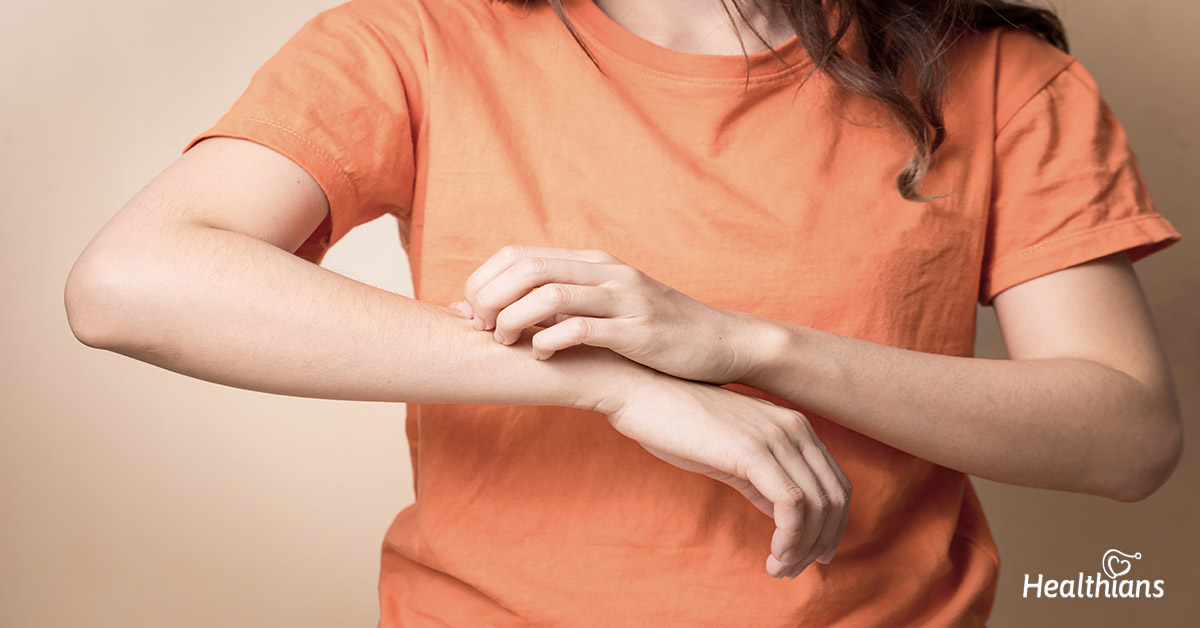Contributed by – Healthians Team
Monsoon is the season of lush greens, sweet earthy smell, pleasant wind, long drives, yummy food, and everything washed clean. No matter how hard the day, a shower of rain acts as a soothing balm to the stress. What can be better than savoring a cup of hot tea on a rainy day?
Although we love rains, there is no denying the fact that it is also a time of health problems and the spread of various allergies and infections. During monsoon, there are temperature fluctuations and high humidity levels which are the best conditions for the breeding of many types of bacteria and fungus.
A lot of infections are associated with monsoon-like fungal infections, intertrigo, ringworm, skin rashes, and irritation. Sweat and high humidity only add to the misery. Areas like the neck, armpits, below the breasts, elbow folds, groin, behind the knee, and feet are much more sensitive to skin allergies. Let us stay alert this rainy season and avoid skin problems.
Common Skin Problems In Monsoons
Folliculitis
Folliculitis is a fungal or bacterial infection of the hair follicle. Our entire body is covered with hair follicles which are meant to protect us. But the interaction between sweat and fungus or bacteria results in skin problems that we know as folliculitis. The red-looking pimple can be really painful and could get infected with pus. Folliculitis generally occurs in the upper back, arms, thighs, and scalp area.
Self Care:
Take care and protect your skin from folliculitis by:
- Using antibacterial bathing soaps as it reduces the risk of infection
- Avoid shaving or any kind of hair removal procedure
- Keep the folds of the body clean and dry
- Use soothing aloe vera gel or lotion
- Add antiseptic liquid to your bathing water
- Keep your skin dry
- Avoid using damp clothes
Eczema
Eczema is a skin condition where the skin becomes infected, patchy, and red in colour. Dry and rough scales on the infected part with severe itching, extreme cases may even develop blisters. It is a contagious form of infection so a lot of care should be taken by those suffering from eczema. The humid and moist weather conditions act as a catalyst in eczema.
Self Care:
Eczema can be dreadful and really uncomfortable. It is best to take care than fall victim to it.
- It should be generally treated by a doctor with medications as soon as diagnosed
- Use a good moisturizer or oil for your scaly skin
- You can try a baby sunscreen too
- Keep your nail well-trimmed and clean
Ringworm
Generally characterized by red ring-shaped inflammation on the skin, hence the name ringworm. It sometimes can be accompanied by minute eruptions on the skin and if scratched can lead to oozing. It is a highly contagious fungal infection which sometimes even spreads to the scalp.
Self Care:
Some effective ways to manage ringworm:
- You can start applying apple cider vinegar which has a strong anti-fungal property
- Apply antiseptic cream meant to treat ringworm
- It is best to get it checked by a skin specialist
Scabies
A monsoon skin infection caused by tiny microscopic mites. These mites hover on the skin for months. They burrow in the skin to lay eggs which cause immense uncontrollable itching which causes redness. It is a highly contagious infection and can spread through clothes, linens, physical contact, and by sharing the same sitting place as well.
Self Care:
To control this dreadful skin problem, follow:
- It is an easily treatable condition and is best to go for an antibiotic course prescribed by the doctor
- To control the spread of scabies, imagine each person at home as a patient and wash their clothes separately
- Sexual contact should be avoided if the person is infected
- To reduce itching, you can use the soothing gel of aloe vera or even use calamine lotion
Nail infections & Athletes’s foot
One can not avoid going out during rains. But, during this season a lot of us fall prey to foot infections. Closed shoes and rainwater can be a deadly infection for the skin. Due to nail infection, the nails show discoloration, brittleness, and swollen nail beds. In an athlete’s foot the skin becomes red, itchy, cracked added with a burning sensation.
Self Care:
There are some tips to keep your feet healthy and how to treat foot infections.
- Avoid wearing closed footwear which keeps your feet damp after getting wet
- Try keeping a dust powder in the bag which you should apply whenever the feet become dry
- Get a regular pedicure done to keep the hygiene of the feet
A little care can help you stay healthy and enjoy the monsoon season.




